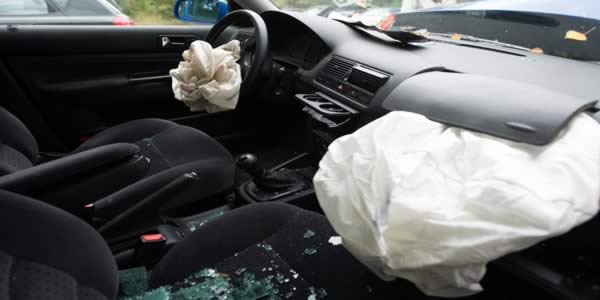Our criminal defense lawyers in Charleston, South Carolina have helped people who’ve forgotten that they’ve left a handgun or firearm in their carry-on luggage while going through airport security at Charleston International Airport, Myrtle Beach International Airport, Columbia Metropolitan Airport, and other airports in South Carolina. If this happens to you, then besides facing criminal charges, you’ll receive notice of a “civil” penalty from the Transportation Security Administration (TSA). In this article, we explain the “civil” consequences of carrying a gun through airport security in South Carolina and how to respond to the TSA to reduce or eliminate any fines.
TSA Notice of Violation for Taking a Gun Through Airport Security
49 C.F.R. Section 1540.111(a) of the Transportation Security Regulations (TSR) provides that you may not have a weapon, explosive, or incendiary on or about your person or accessible property when performance has begun of the inspection of you or your accessible property before entering a sterile area, or before boarding an aircraft. For practical purposes, once you’ve entered the screening process, you can’t “back out,” and the “damage” is done.
If you violate 49 C.F.R. Section 1540.111(a), you’ll receive a notice from the Transportation Security Administration (TSA) of a “civil” penalty. The Notice will state that the TSA proposes a civil penalty in an amount that doesn’t exceed $5,000 for a violation of the Transportation Security Regulations (TSR). Also, the Notice will state that you can pay a lesser amount than is specified in the Notice. However, if you can’t reach an agreement with the TSA concerning the amount of your penalty or if you ignore the Notice, then the TSA will issue a Final Notice of Violation and a Civil Penalty Assessment Order, typically for the full penalty.
This FREE book for weapons owners has practical information on South Carolina’s gun laws, concealed weapons permits, the Protection of Persons and Property Act, use of deadly force, self-defense, defense of others, weapons offenses and penalties, and much more.
Factors the TSA Considers in Determining the Penalty
In determining the amount of the civil penalty, the TSA considers aggravating factors including:
- Artful concealment;
- Number of weapons, or volume of explosives and incendiaries;
- Type of weapon, explosive or incendiary;
- Display or use of a weapon, explosive or incendiary;
- Past violation history;
- Violator’s experience level (e.g., airport/air carrier employees are trained and experienced).;
- Evidence of intent to interfere with operations (e.g., testing the system with a prohibited item, attempting to enter a sterile area with the prohibited item after previously being allowed to leave in order to divest); and
- The violator’s attitude.
The TSA will also consider mitigating factors such as:
- Disclosure by violator;
- Inexperienced flyer;
- The violator is a juvenile; and
- Other penalties are assessed by federal, state, or local law enforcement.
Responding to a TSA Notice of Violation
You have 30 days to respond to the Notice of Violation. You can respond according to several options that are detailed in the Notice:
- You can submit a certified check or money order for the lesser specified penalty amount in the Notice of Violation, made payable to Transportation Security Administration and sent to the address specified in the Notice of Violation, or make such payment electronically through http://www.pay.gov .
- You can submit to the office identified in the Notice of Violation one of the following:
- Written information and other evidence, including documents and witness statements demonstrating that you didn’t violate the regulations or that the proposed penalty isn’t warranted by the circumstances.
- A written request to reduce the proposed civil penalty, the amount of requested reduction, together with any documents supporting a reduction of the proposed civil penalty, which reflect a current financial inability to pay or records showing that payment of the proposed civil penalty would prevent you from continuing in business.
- A written request for an Informal Conference, at a date to be determined by an agency official, to discuss the matter with the agency official and to submit supporting evidence and information to the agency official before the date of the Informal Conference.
- Submit to the office identified in the Notice of Violation and to TSA’s Enforcement Docket Clerk a written request for a formal hearing before an Administrative Law Judge.
Negotiating the Civil Penalty
For many persons, the proposed penalty (typically $1,000.00 or more) is too steep for their financial situation. The good news is that in our experience helping clients, we’ve found that the TSA will act fairly in negotiating the fine and will oftentimes reduce it to perhaps a few hundred dollars.
Other Consequences
If you violate 49 C.F.R. Section 1540.111(a), you won’t be placed on a “no-fly” list. Also, according to the TSA, you also won’t be singled out for additional screens. However, if you’re a frequent flyer who is part of the TSA Pre-Check Program, your privileges will be suspended by the TSA. Your TSA Notice of Violation won’t state how long your privileges will be suspended, so you’ll need to contact the TSA at 1-866-289-9673 to find out about the duration of your suspension.
Also, there may be state and federal criminal charges for bringing a concealed weapon into a South Carolina airport. For example, Section 16-11-620 states that if you bring a concealable weapon where the premises posts a “NO CONCEALABLE WEAPONS ALLOWED” sign, you may be charged with criminal trespass. A first offense may result in a $200 fine or 30 days in jail. If you get a second or a third offense for criminal trespass, in addition to fines and jail, your Concealed Weapons Permit (CWP) may be revoked for one year.
Lawyers in Charleston, South Carolina for Weapons Charges
If you’ve received a Notice of Violation from the TSA, call the attorneys at Futeral & Nelson to discuss your rights and options.
Download Our Free Book on Gun Laws in South Carolina

Stephan Futeral’s and Thomas Nelson’s Book, “Gun Laws in South Carolina – Piecing It All Together,” is available for FREE on the iTunes® Bookstore or as a PDF. Based on over 30 years of their combined experience, Stephan and Thomas wrote this book in easy-to-understand terms to explain the laws and your rights in South Carolina when you own, carry, or use a firearm. If you own a weapon such as a handgun or if you have a Concealed Weapons Permit, then this book is a MUST READ.












